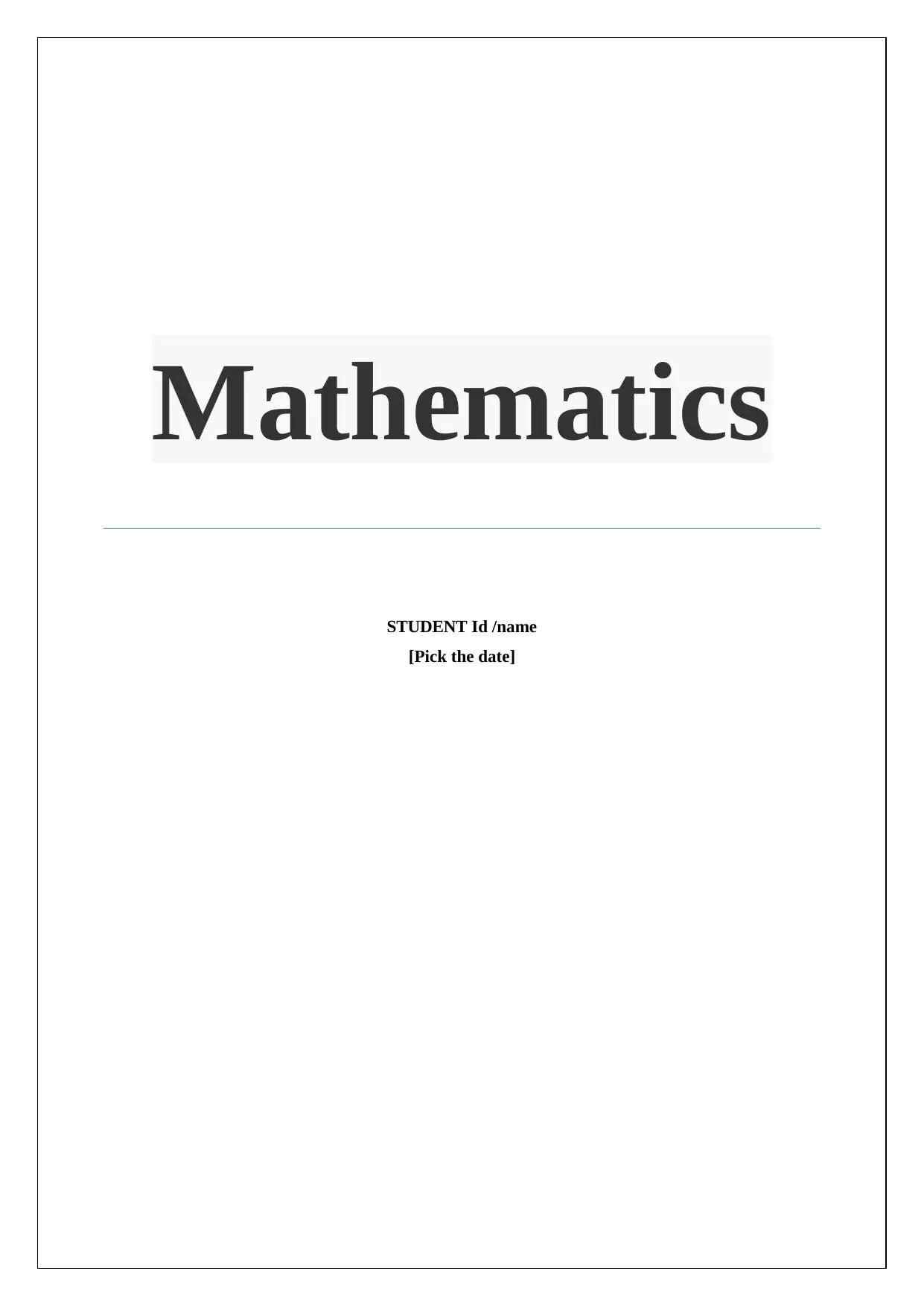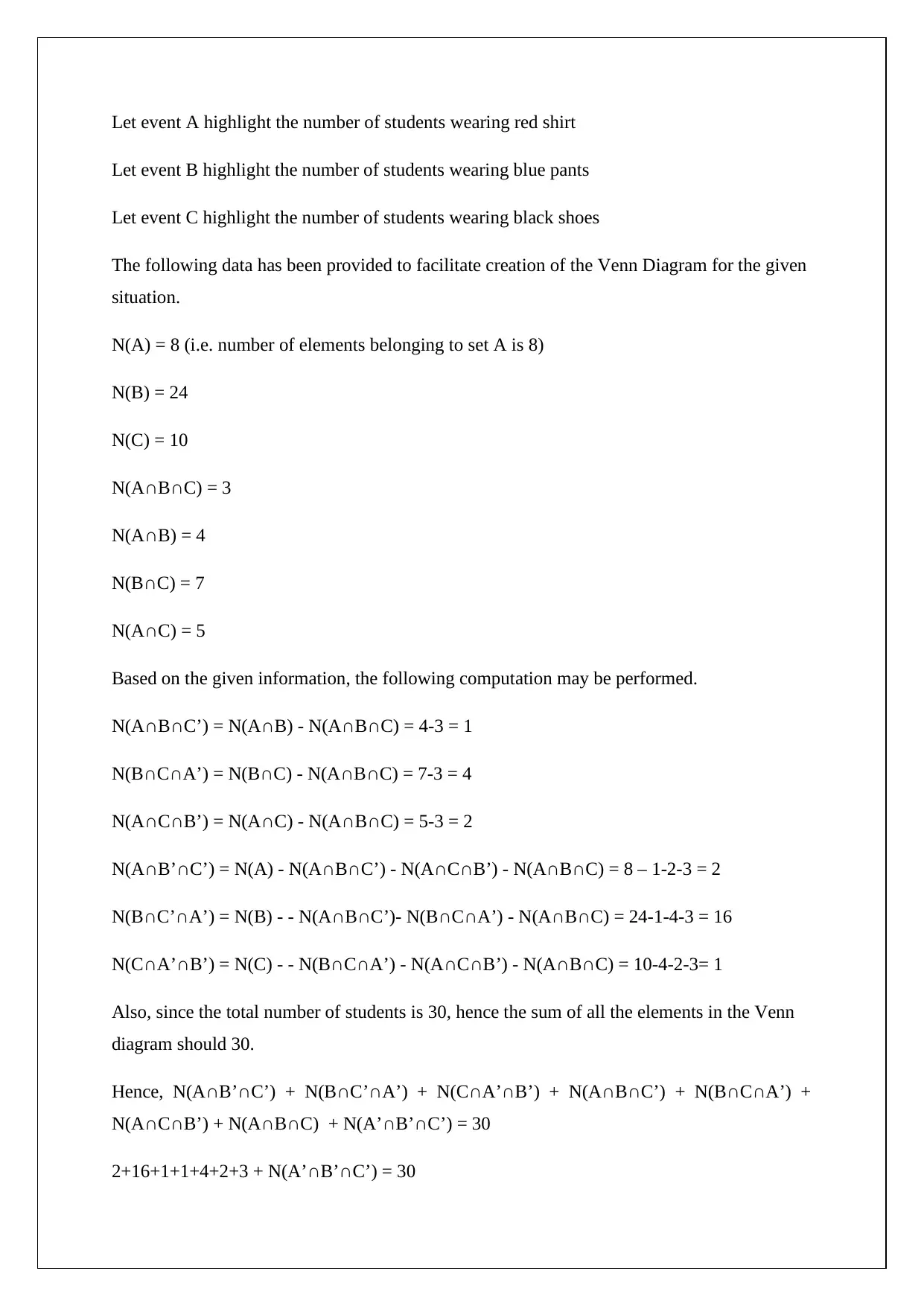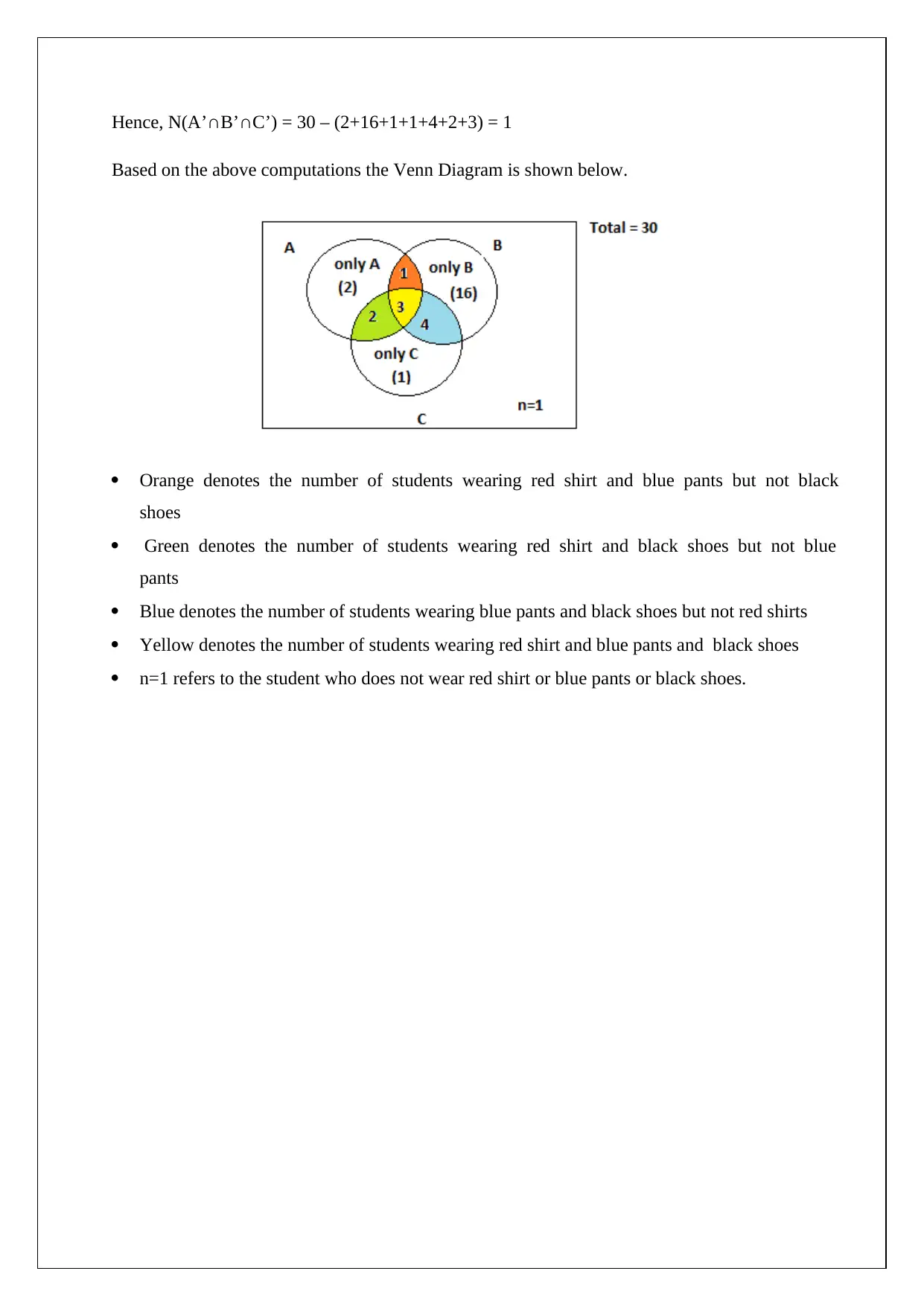Mathematics Solution: Venn Diagram Analysis of Student Attire
VerifiedAdded on 2023/05/29
|3
|502
|375
Homework Assignment
AI Summary
This assignment solution demonstrates the application of Venn diagrams to analyze data related to student attire. The problem involves determining the number of students wearing red shirts, blue pants, and black shoes, with various intersections of these attributes provided. The solution meticulously calculates the number of students in each region of the Venn diagram, including those wearing only certain items and those wearing none of the specified items. By using set theory principles and the given data, the solution constructs a complete Venn diagram, illustrating the distribution of students based on their attire. The final step involves verifying the total number of students to ensure the accuracy of the diagram. This document is available on Desklib, where students can find more solved assignments and study resources.
1 out of 3









![[object Object]](/_next/static/media/star-bottom.7253800d.svg)